Before I get into today’s blog, I forgot to mention another farm treasure! :) Looking for chicken eggs, none the less. After collecting the eggs from the sections of the coop where the chickens lay, you have to climb your way up into the coop and check behind boards. Some chickens will go behind these boards to lay their eggs, so you always have to check! On a typical day, you’ll find 2 or 3 eggs behind these boards, and it’s always worth the lovely smell of being inside the coop....
Yesterday and early this morning, we continued to harvest and prepare our veggies for the CSA farm pick up and St. Albans drop off. (On Monday’s we drop some members shares off at the St. Albans hospital, and on Thursday’s half of the rest of the members pick up here, and the other half pick up in St. Albans.) Some vegetables continue to appear each week, like Prize Choi, both green and red head lettuce, radishes and beat greens. This week we added garlic, snap and shell peas, raspberries and potatoes, which Eric and I dug for about 60 pounds of for a good portion of yesterday morning! With some potato plants you’ll get maybe 4 good size new potatoes, others, you’ll just dig and dig and unfortunately not find one, or if you do, it’ll be too tiny too take. This week with the garlic, after we dug up these intoxicatingly delicious smelling bulbs, we dried them off, only so the mud would turn to dirt and brush off easier, and then we cut off most of the stem and roots. This week however, will be the only we week give out fresh garlic, the rest awaiting in the garden will be pick and dried up to be cured.
Yesterday afternoon, the interns took a break from harvesting, washing and weeding, and traveled to Applecheek Farm in Hyde Park, Vermont. This diverse family run organic farm contains llamas, emu, tons and tons of chickens and turkeys, miniature horses, ducks, goats, and cows for dairy. It’s quite the operation, but holds the same core values as Maplewood, producing good, natural food, and caring for the lives of the animals, which results in higher quality food. Meat from grass fed cattle for instance contains more omega 3 fatty acids which can reduce chances of heart related issues, cancer and lower blood pressure. Grass fed, compared to grain fed cattle, will also produce a meat with less fat. Beef from a less stressed cow, living in it's natural, pasture environment, can only have a advantages on those living their lives inside, cramped and pumped with unnatural elements, forcing them to grow faster.
Applecheek’s chickens, like ours, are free range, and walked all around the property, living a very content life. Our chickens mostly stay in their fenced in area by the coop, but a handful will get out, only to rush back and try to fight their way through the fence when it’s feeding time! Our chicken friend, who permanently lives outside the coop and feeds on whatever she can around the farm, still lingers around us when we work. We’ve given her the name, “Stewy”, as the Eric’s joke they’re going to make stew chicken out of her! Only time will tell what the fait of Stewy will be, but for now she’s enjoying her nomadic life.
Thursday, July 16, 2009
Subscribe to:
Post Comments (Atom)



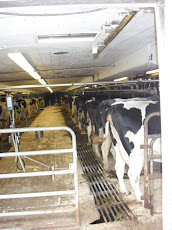




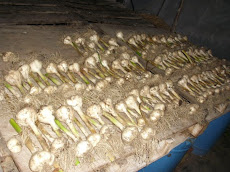



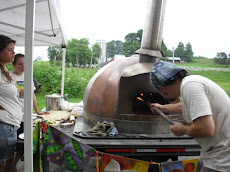

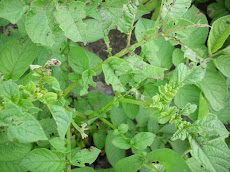



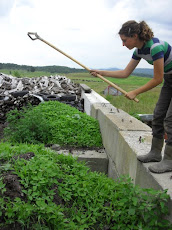



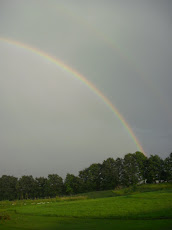
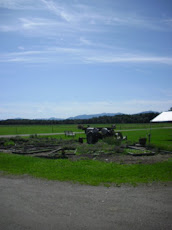
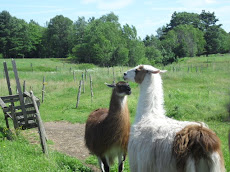

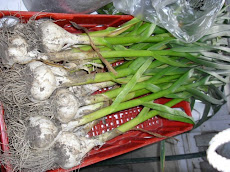




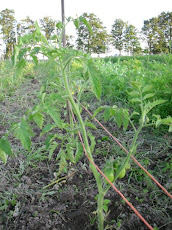

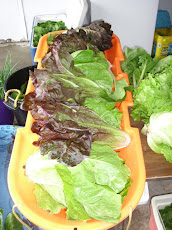




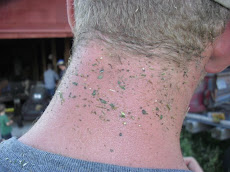

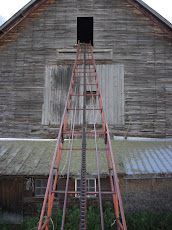



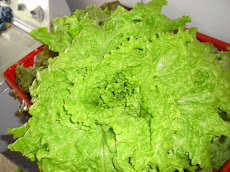

.jpg)


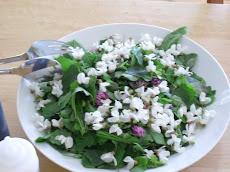
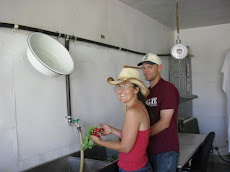







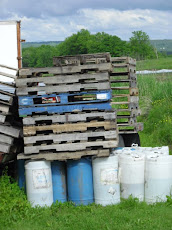




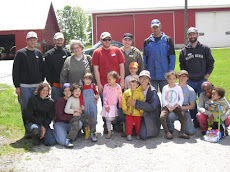
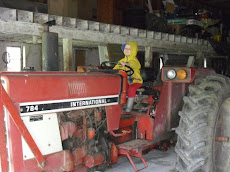




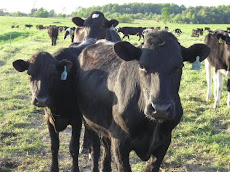

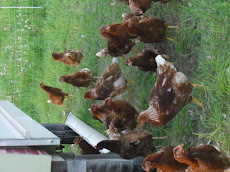

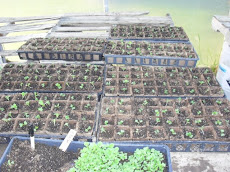



No comments:
Post a Comment